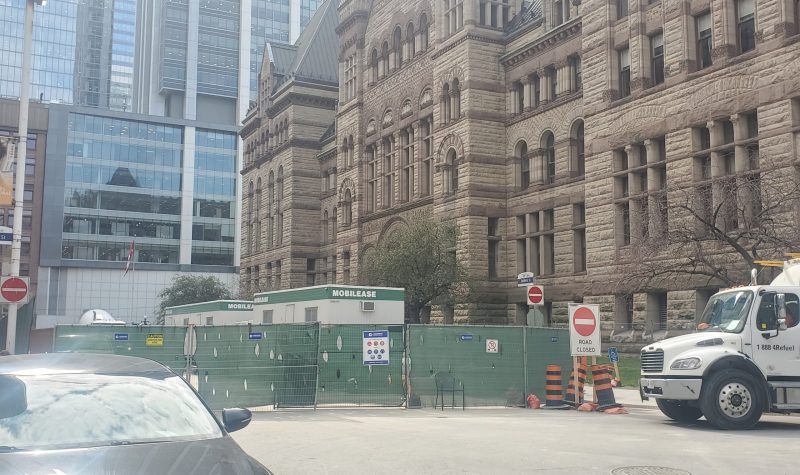The City of Toronto is reviewing its plan for handling traffic congestion. In an upcoming meeting on Oct. 23, four updates will be heard at committee.
Adopted by the city in 2013, the plan has gone through multiple iterations to help in dealing with traffic congestion in the city and construction on the street. In 2020, the city adopted the revised plan for 2021 to 2025.
These four updates that are going to committee will be adding more members to the traffic management team to create a dedicated team. The increase in the team supports the two of the updates. The two include “establishing a dedicated traffic management team” and “providing increased traffic management support for surface street transit.”
The team would work with Toronto Police Services, Toronto Parking Authority and Toronto Transit Commission “to improve traffic management planning efforts around major events.” Roger Browne, director of traffic management of Toronto, says that earlier this year the number of members of the management team was three.
“Currently in the field, we have 12 [agents] right now as we speak. The good news is that we have a graduating class coming up. And so by the end of November we're going to be adding another 15 bringing the number up to so by the end of November. We will have 27 of these folks out on the street. [In] March, we're going to be adding additional [members]. [We] will ultimately have 45 traffic agents ready to be deployed by the end of March,” says Browne.
The other two changes all revolve around budding technologies. In the Agenda item it says that they will be “leveraging” artificial intelligence to “better coordinate construction on city streets.” Browne says that they are proposing to use A.I. to also optimize traffic signals “to help all modes move more efficiently and safely with less delay.”
Funding for these potential implementations is cited to be around C$39 million. With additional funding C$45 million being proposed for “the implementation of Smart Signals and related activities in future years is currently identified as a Capital Needs Constraint.”
“Second generation smart signals, they really are leaps and bounds ahead of what we did back in the mid-’90s. Because it allows us to implement features like leading pedestrian intervals and extra time for pedestrians across a lot of other safety measures that weren't in the original generation,” says Browne. “The new artificial intelligence basically takes a lot more information into consideration into the decision making. It takes pedestrian counts, it takes cyclists, it takes transit counts [and] routes, delays for transit. It takes a whole bunch of information that's available through the internet of things to help in the decision making process.”
Listen to the story below:


